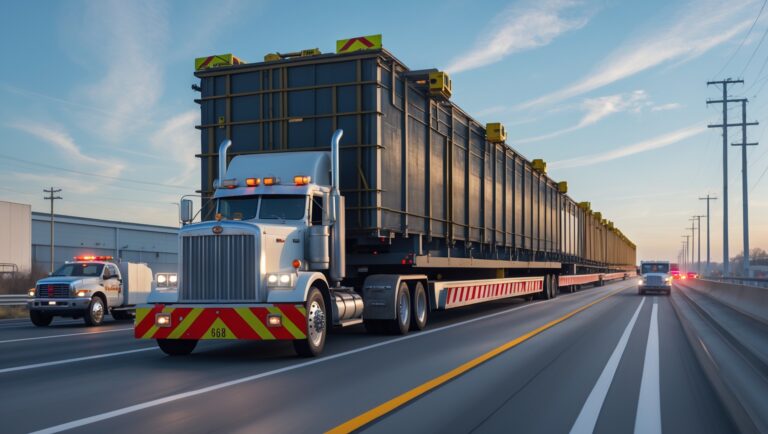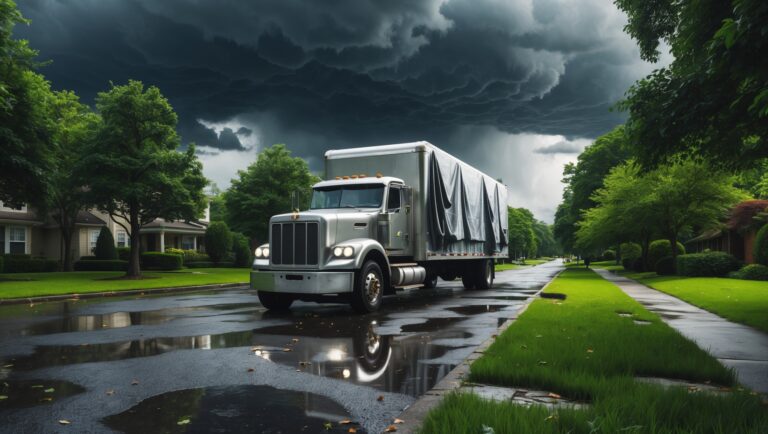Moving Business Compliance: Permits, Licenses, and Legal Must-Knows for New Operators
Introduction: Why Compliance is Crucial for Moving and Storage Startups
Entering the moving and storage industry is more than just acquiring trucks, hiring staff, and advertising your services. One of the most overlooked yet critical aspects for new operators is compliance—obtaining the correct permits, licenses, and adhering to legal requirements at every level. Failing to do so can result in fines, loss of business, and even criminal penalties, putting your entire investment at risk. The regulatory landscape is complex, varying significantly by state and locality, and includes federal, state, and municipal rules. For new business owners, navigating this maze can seem daunting. However, full compliance is not just about avoiding penalties; it’s about building a trustworthy, professional brand, qualifying for insurance, and ensuring your business is eligible for contracts—especially with government or commercial clients. This comprehensive guide breaks down the essential must-haves for legal operation, common pitfalls, and practical tips for maintaining ongoing compliance, so you can focus on growing your moving business with confidence.
Understanding the Regulatory Landscape
Federal vs. State vs. Local Oversight
Compliance requirements originate from multiple government levels. Federally, interstate movers are regulated by the Federal Motor Carrier Safety Administration (FMCSA). State agencies oversee intrastate moves, and municipalities may impose additional rules on local operations. Each layer has unique demands, forms, and enforcement mechanisms.
- Federal: Applies if you transport goods across state lines.
- State: Covers moves within a single state, with licensing often managed by the public utilities commission or department of transportation.
- Local: City or county business licenses, zoning permits, and parking regulations.
Federal Compliance Essentials
USDOT Number
Any moving company operating commercial vehicles that transport passengers or cargo in interstate commerce must have a United States Department of Transportation (USDOT) number. This unique identifier tracks safety records, inspections, and compliance reviews. Apply via the FMCSA website.
Motor Carrier (MC) Number
In addition to a USDOT number, if you transport household goods across state lines for hire, you need an MC number. This authorizes you to operate as a for-hire carrier. The application process includes proof of insurance and payment of fees.
FMCSA Registration and Compliance
Registration with the FMCSA is not a one-time event. Ongoing requirements include annual updates, maintaining insurance filings, and adhering to safety regulations such as Hours of Service (HOS), driver qualification files, and drug/alcohol testing programs.
Bureau of Household Goods and Services (BHGS) Regulations
Some states, like California, have their own federal-equivalent agencies (e.g., BHGS) with additional requirements for household movers. Know your state’s structure to avoid missing dual compliance obligations.
State Licensing and Permits
Intrastate Operating Authority
Most states require a specific moving company license for intrastate operations. This typically involves:
- Submitting a detailed application
- Proof of insurance and bonding
- Background checks for owners
- Vehicle inspections and registration
States like Texas, Florida, and New York each have unique licensing bodies and rules. Check with your state’s Department of Transportation or Public Utilities Commission for details.
Business Entity Registration
Registering your business as an LLC, corporation, or partnership is mandatory. This is handled by your state’s Secretary of State office. Operating without entity registration can result in personal liability for business debts and lawsuits.
Sales Tax Permits
If your state taxes moving services or related product sales (like boxes, packing supplies), you’ll need a sales tax permit, usually issued by the state’s Department of Revenue.
Local Permits and Municipal Compliance
Business Licensing
Most cities and counties require a general business license, even if you’re home-based. These licenses must be renewed annually and are distinct from state or federal requirements.
Zoning Permits and Home Occupation Rules
If you operate from a physical location (warehouse, office) or your home, verify zoning compliance. Many areas restrict commercial vehicle parking, signage, and even business activity in residential zones. Apply for a zoning permit or variance if needed.
Parking and Loading Permits
Urban operations may require temporary no-parking permits or loading zone reservations, especially for moves in congested areas. Failing to secure these can lead to fines or towing of your moving vehicles.
Insurance Requirements for Legal Operation
General Liability and Cargo Insurance
Most states and the FMCSA mandate minimum levels of liability and cargo insurance. These protect your business and your clients’ possessions. Proof of insurance is typically required for licensing.
- General Liability: Covers property damage or injury not related to the vehicle.
- Automobile Liability: Mandatory for all commercial vehicles.
- Cargo Insurance: Protects clients’ goods against loss or damage.
Workers’ Compensation
If you have employees, most states require workers’ compensation insurance. This covers medical expenses and lost wages for injured workers and is essential for legal operation.
Key Compliance Documents Every Moving Business Needs
- Tariff: A published schedule of rates and services, required by the FMCSA and many states. It must be provided to customers on request.
- Bill of Lading: The official contract between mover and customer, legally required for every move.
- Inventory List: A detailed itemization of shipped goods, helpful in dispute resolution.
- Consumer Rights Booklets: Federally required “Your Rights and Responsibilities When You Move” booklet must be given to customers for interstate moves.
- Accident Register: A log of all accidents involving your vehicles, per FMCSA rules.
Common Compliance Mistakes (and How to Avoid Them)
1. Skipping Dual Registration for Interstate/Intrastate Moves
Some operators assume one registration is enough. If you operate both locally and across state lines, you may need both state and federal authority.
2. Letting Permits or Insurance Lapse
Missed renewals can invalidate your authority and insurance, exposing you to fines and lawsuits. Set calendar reminders for all expiration dates.
3. Ignoring Local Ordinances
Parking, signage, and noise restrictions vary widely. Always check with city officials before committing to a location or launching a marketing campaign.
4. Not Updating Business Information
Address, ownership, and insurance changes must be reported promptly to all licensing bodies. Failure to do so can lead to suspension or revocation of authority.
5. Incomplete Tariff or Bill of Lading
Improper paperwork is a leading cause of customer disputes and regulatory penalties. Use standardized templates and train staff thoroughly.
Step-by-Step Compliance Checklist for New Operators
- Register your business entity with the state (LLC, corporation, etc.).
- Apply for a federal USDOT number and, if moving interstate, an MC number via the FMCSA.
- Obtain state-level operating authority from the relevant agency.
- Secure local business licenses and verify zoning compliance for your location.
- Purchase required insurance policies (liability, cargo, auto, workers’ comp).
- Develop and publish your tariff (rates and services schedule).
- Prepare standardized Bills of Lading and ensure consumer rights booklets are available.
- Implement a driver qualification and drug/alcohol testing program (if required).
- Set up a system to track permit, license, and insurance renewals.
- Regularly review changing regulations at the federal, state, and local levels.
Maintaining Ongoing Compliance
Annual and Biennial Updates
FMCSA requires biennial updates of your company’s information, even if nothing has changed. Many states require annual license renewals and proof of insurance. Missing these deadlines can suspend your authority overnight.
Audits and Inspections
Expect random audits from the FMCSA, state agencies, or local officials. Maintain organized records, including driver logs, inspection reports, and accident registers, to facilitate smooth inspections.
Employee Training and Compliance Culture
Train drivers and office staff on compliance basics: paperwork, drug/alcohol policies, customer disclosures, and incident reporting. Make compliance a core value to prevent costly errors.
Technology Solutions
Consider compliance management software to track renewals, maintain digital records, and automate filing processes. This can significantly reduce the risk of human error.
Resources for Staying Up-to-Date
- FMCSA Website: The authoritative source for federal regulations and updates.
- State Agencies: Bookmark your state’s DOT or PUC moving company section.
- Industry Associations: Organizations like the American Moving & Storage Association (AMSA) provide compliance resources, training, and alerts.
- Legal Counsel: Retain or consult with an attorney specializing in transportation law, especially when expanding into new jurisdictions.
Conclusion: Compliance as a Competitive Advantage
Compliance in the moving and storage business is not just a bureaucratic hurdle—it’s a foundation for long-term success. By diligently securing all necessary permits, licenses, and insurance coverage, you demonstrate professionalism to your clients and position your company for lucrative contracts and partnerships. Regulatory requirements are constantly evolving, and what works in one state or city may not suffice in another. As a new operator, investing time and resources into understanding and maintaining compliance will save you from costly fines, legal disputes, and the risk of having your business shut down. More importantly, it provides peace of mind for you and your customers, knowing you’re operating ethically and responsibly. Make compliance an integral part of your business plan, revisit your obligations regularly, and leverage industry resources for ongoing education. In a competitive market, a spotless compliance record is not just protection—it’s a powerful selling point that sets you apart. Start your moving journey strong, secure, and 100% above board, and you’ll be building a business that can weather any regulatory storm.






